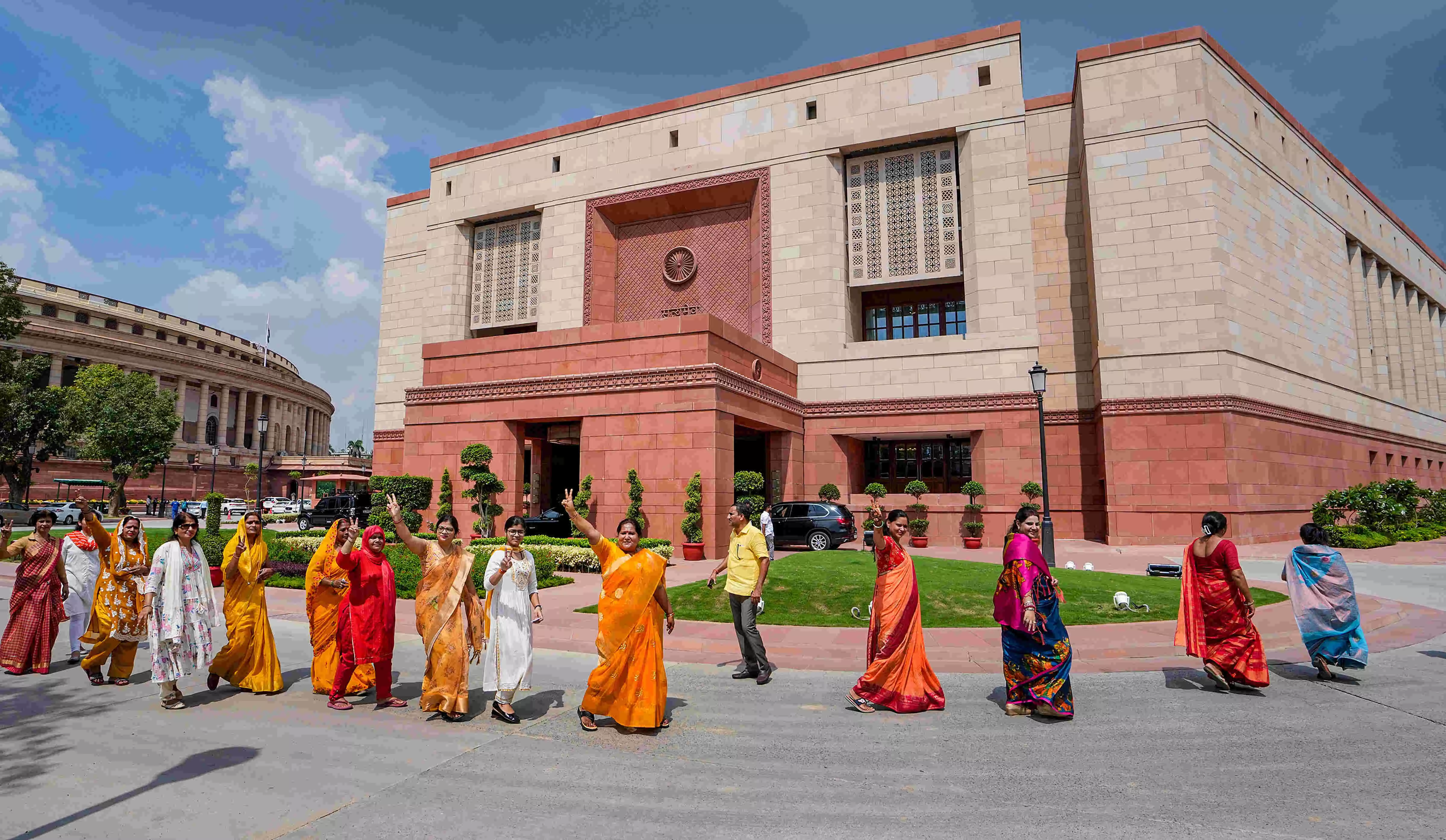Out of abeyance?

In a resounding show of support for gender equality and women's empowerment, the Lok Sabha passed the 128th Constitution Amendment Bill, also known as the Nari Shakti Vandan Adhiniyam, with an overwhelming majority of 454 in favour and only 2 against. The Rajya Sabha also unanimously passed the Bill. This remarkable display of unity across the political spectrum underscores the pressing necessity of the bill. However, it also raises a pertinent question — if so widely accepted is the significance and urgency of the Bill, then why has this crucial legislation been kept in limbo for 27 long years since its first formulation, and why are lawmakers planning to delay its implementation for another 6-8 years? The near-unanimous support for the Bill is indeed heartwarming, with only two dissenting votes coming from Asaduddin Owaisi and Syed Imtiyaz Jaleel in Lok Sabha. Such widespread acceptance of the legislation encourages one to be optimistic about its eventual ratification by half the states of India. One of the key developments during the discussion on the Bill in Lok Sabha was Congress leader Sonia Gandhi's demand for a separate quota within the quota for Other Backward Classes (OBCs) after conducting a caste census. She also rightly questioned the potential delay in implementing the Nari Shakti Vandan Adhiniyam. In response, Union Home Minister Amit Shah emphasised that determining which seats should be reserved for women should be incumbent upon the delimitation exercise, which will take time. He pointed out that if the government were to make this decision unilaterally, it could lead to a political controversy. Regarding the separate OBC quota, he assured that the government would address any shortcomings in due course. While the issue of a separate OBC quota for women merits thorough deliberation, the question arises whether delimitation is the only viable method for determining seat reservations. Delimitation, a complex and time-consuming process, could further delay the implementation of this crucial legislation. It is essential to explore alternative methods that ensure a fair and impartial allocation of seats without unnecessary delays. Notably, one aspect of the Bill's passage is the government's decision to prioritise it ahead of the 2024 General Elections. Holding a rare special session of Parliament to push for its passage indicates a political motive. While it is natural for any government to seek political mileage, it is paramount that political considerations do not hinder the realisation of this long-overdue legislation. The bill has been in abeyance for decades without justifiable reasons, and it is high time that it becomes a law. The Nari Shakti Vandan Adhiniyam may not be a flawless piece of legislation, but it is a significant step forward in the journey toward women's empowerment and equal representation in the political arena. It has the potential to serve as a milestone in achieving proportional representation of women in political decision-making. Increased female representation in Parliament will pave the way for policies and legislation that are sensitive to the unique needs and challenges faced by women. Moreover, the participation of more women in Parliament will undoubtedly bring fresh perspectives and insights to the broader decision-making process. It is a fact that diversity in representation leads to more well-rounded and inclusive policies, which is quintessential for a diverse and complex nation like India. As the nation celebrates the passage of the Nari Shakti Vandan Adhiniyam in the Lok Sabha and Rajya Sabha, it also has ample reasons to be optimistic about its subsequent ratification by states. This bill has been long overdue, and it cannot afford further delays. It represents not just a legal document but a commitment to gender equality and the empowerment of nearly half of India's population. In the coming years, it will be a collective responsibility to nurture and evolve this legislation to make it more effective in addressing the unique challenges faced by women in Indian society. All stakeholders must work together to ensure that the Nari Shakti Vandan Adhiniyam becomes a catalyst for positive change, leading the nation toward a more equitable and inclusive future where every woman's voice is heard and valued in the corridors of power.



